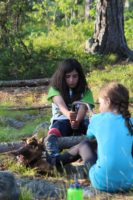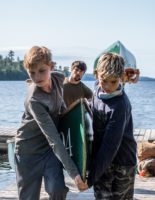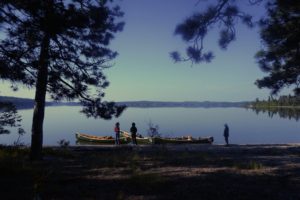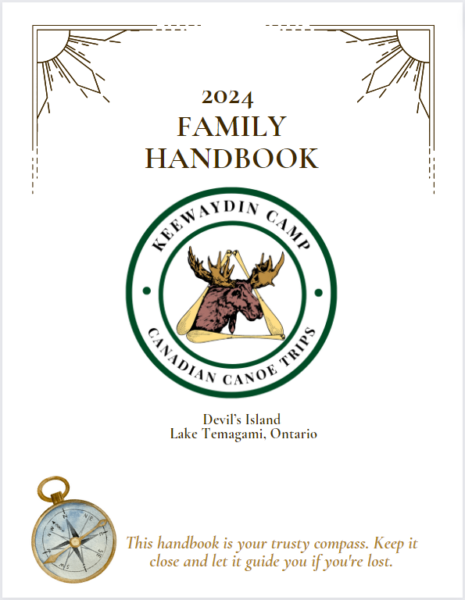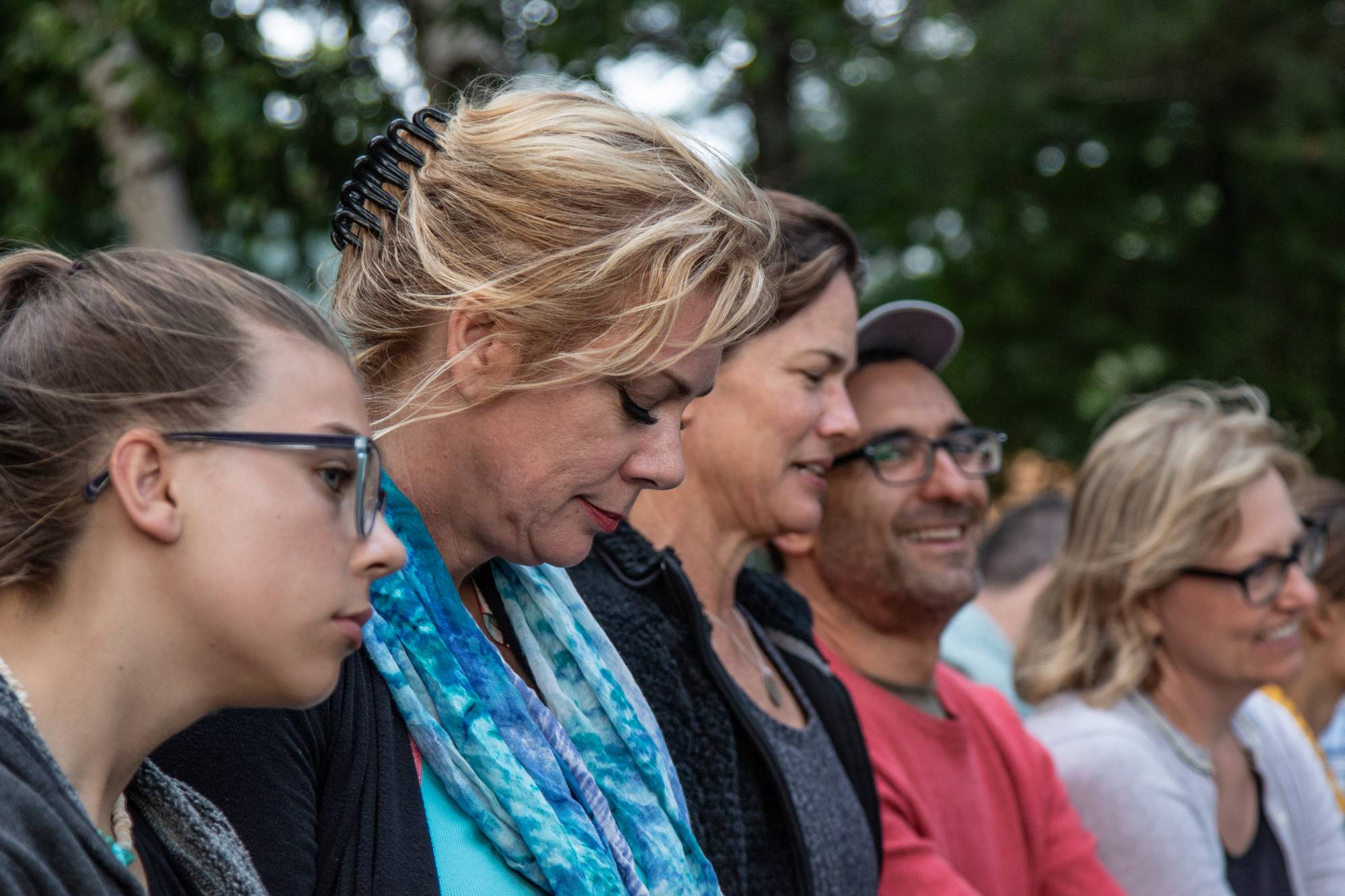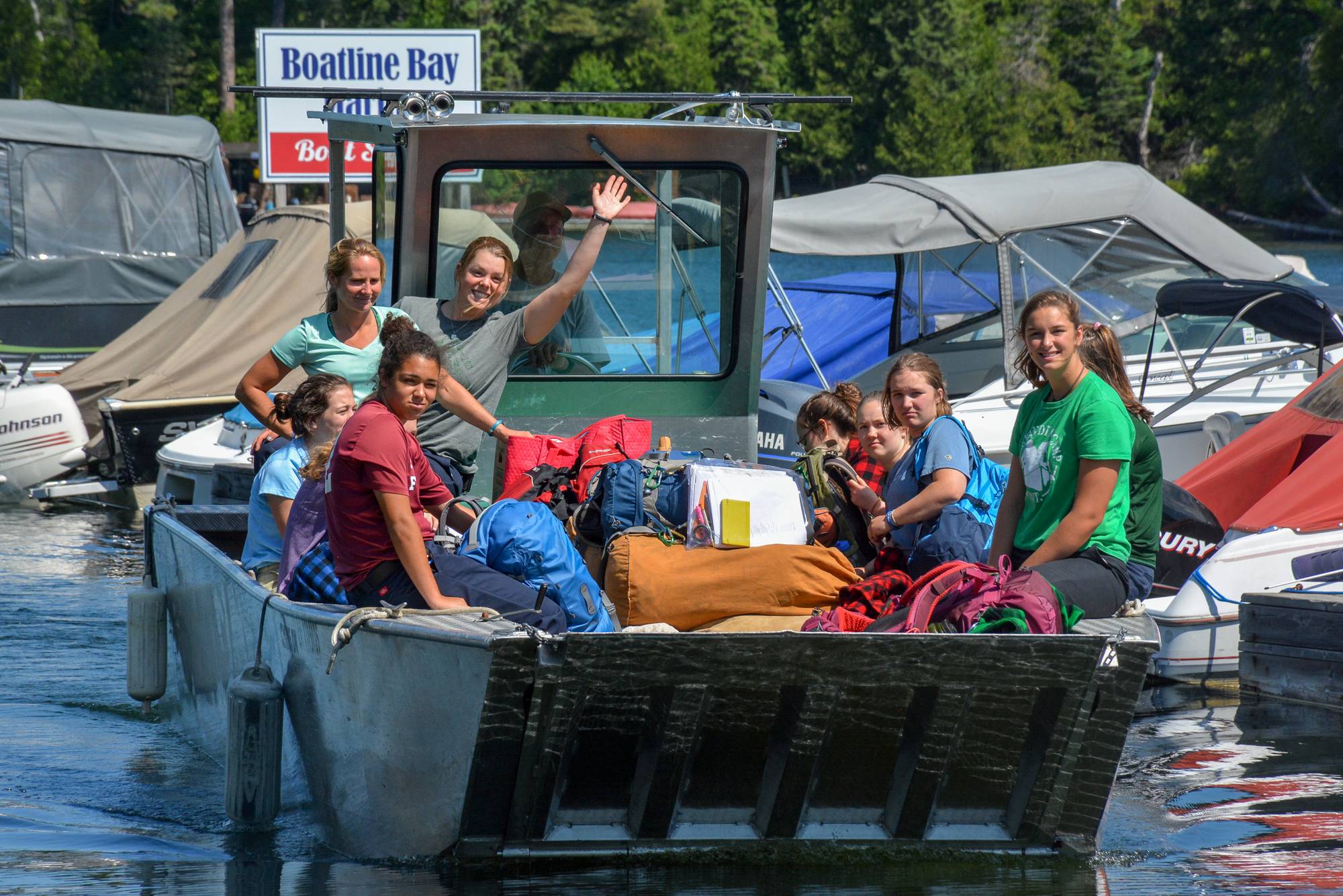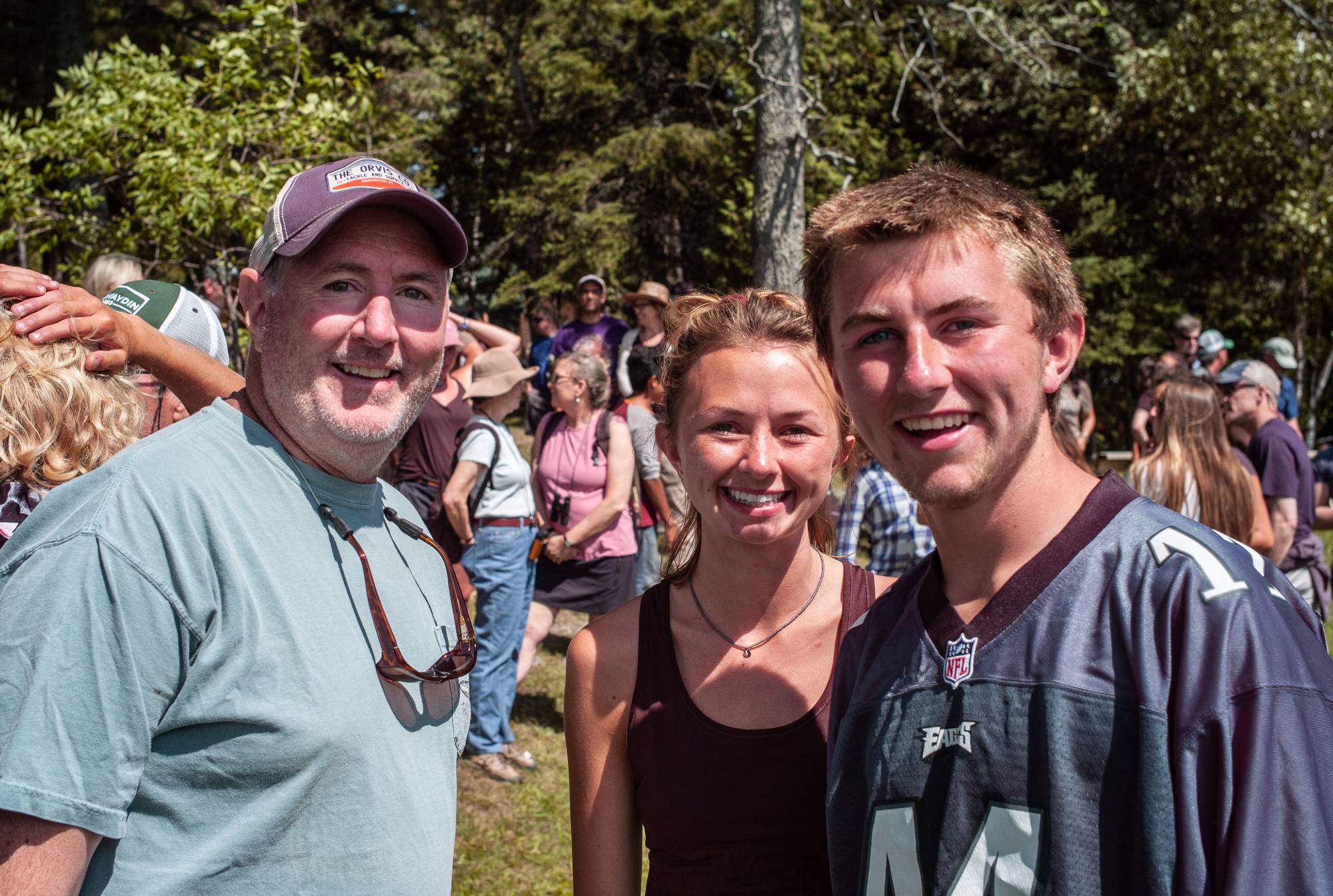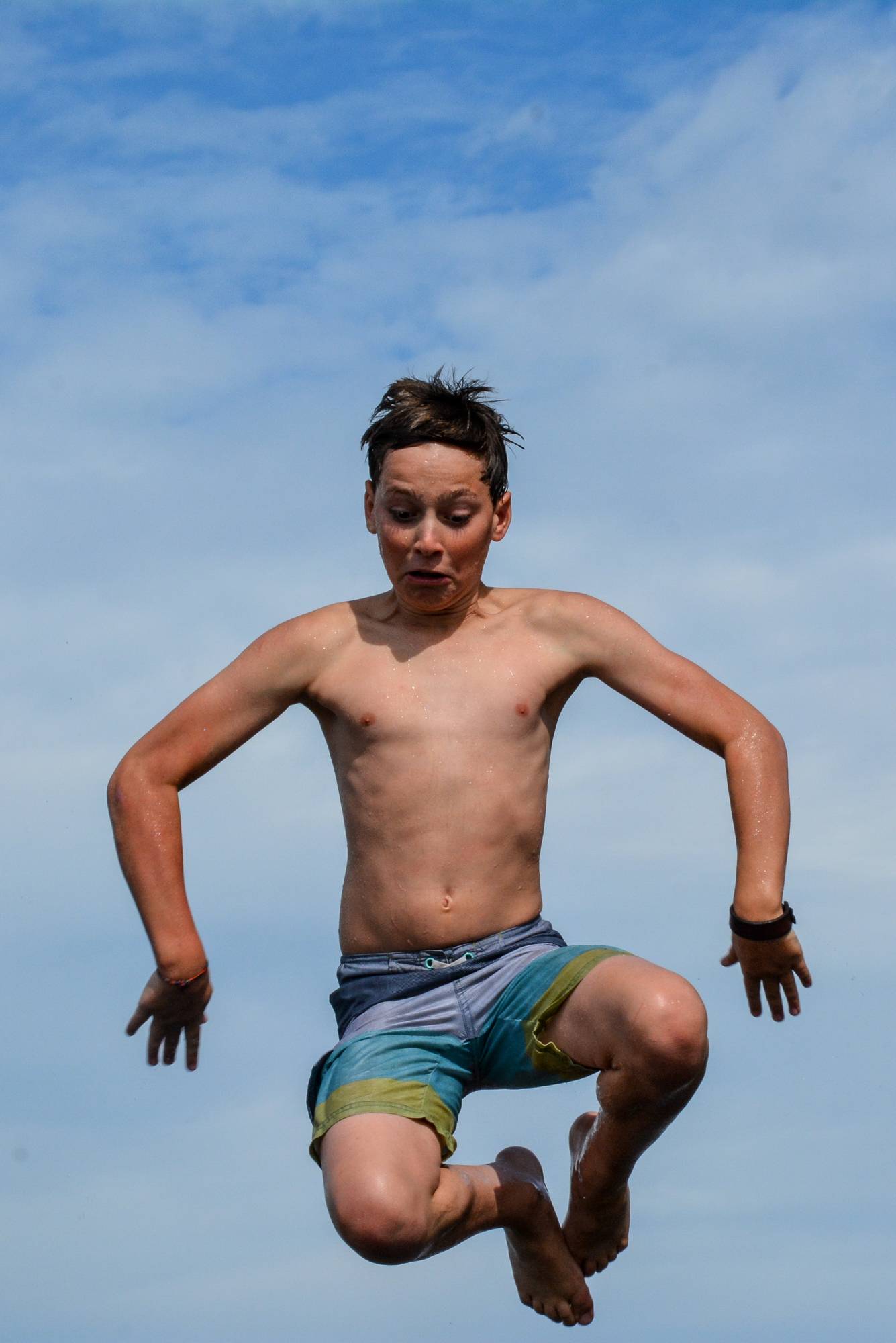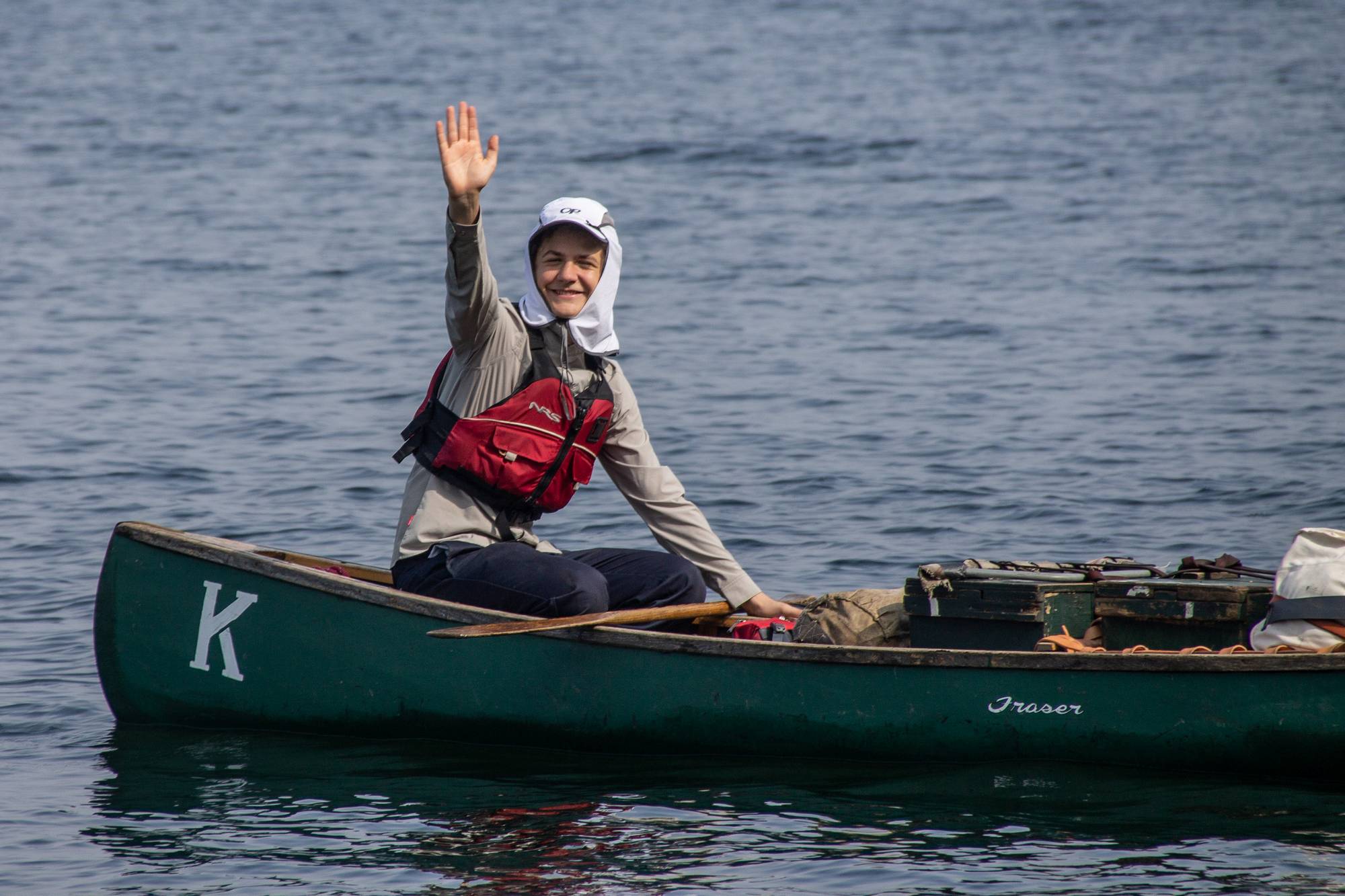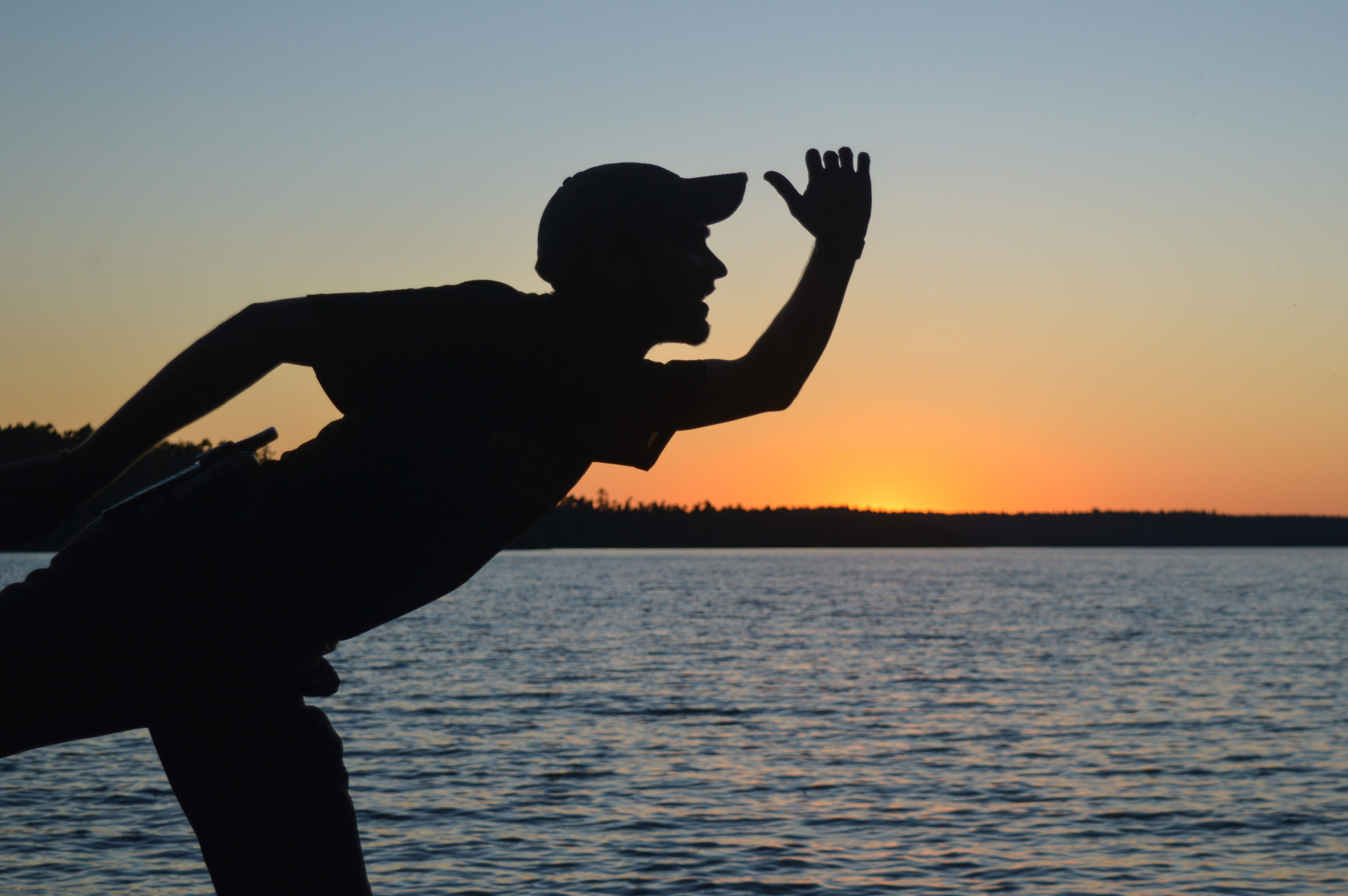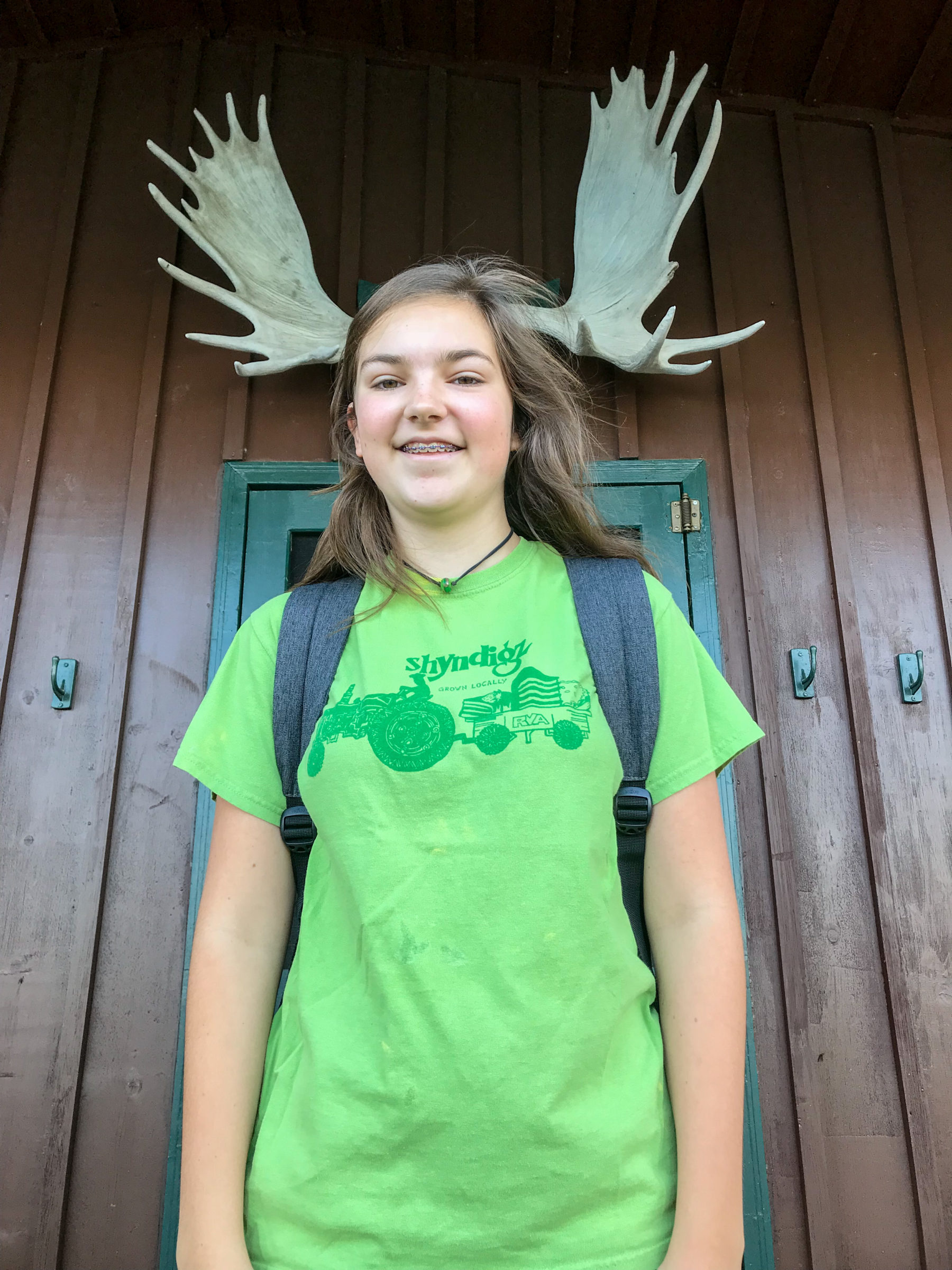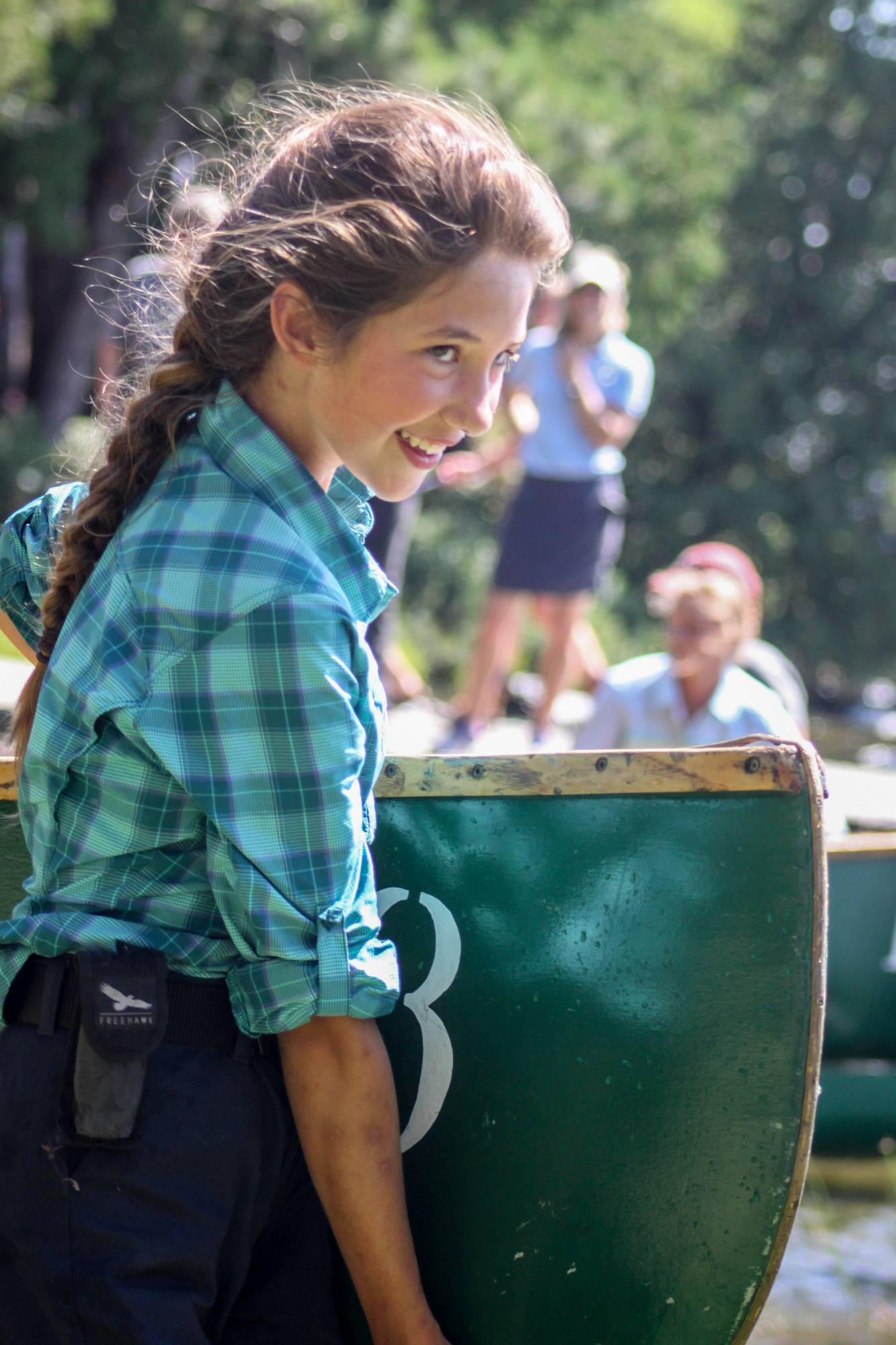Dates & Rates
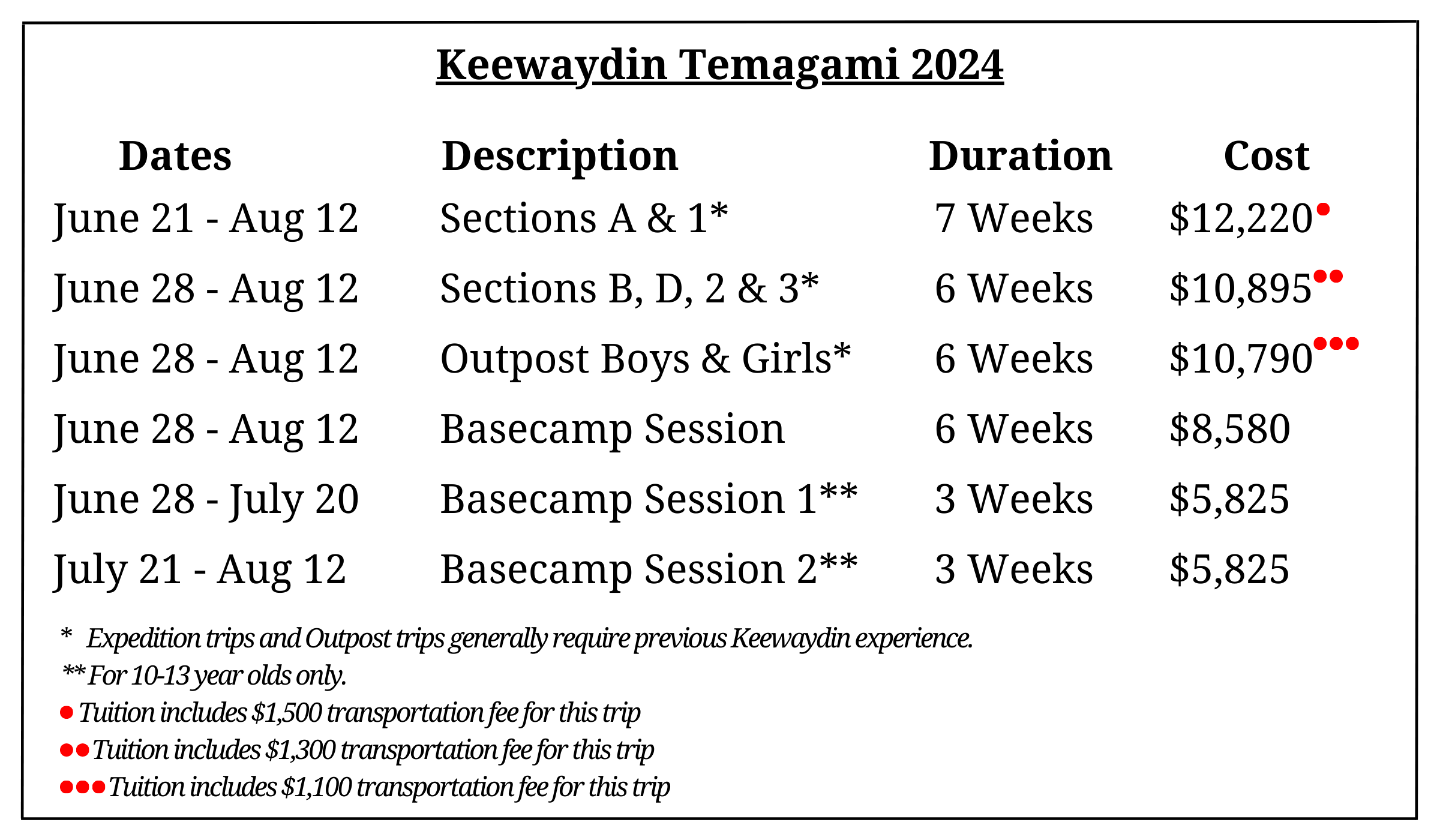
See the full 2024 Season Schedule
Special Notes
A non-refundable deposit of $500 is required with the application.
(Deposits will be refunded only if we are unable to accept a camper.)
Discounts
Early Bird Discount – Enroll by November 1 to receive an Early Bird Discount of $250.
Sibling Discount – Receive a 5% discount on each fee for two or more siblings attending
any Keewaydin Foundation camp (Temagami, Dunmore, Songadeewin).
Taxes
HST tax of 13% will be added for all fees and purchases.
Other Charges
Camp Store – Usually up to $250 for a first-year camper (this covers trip duffle, tumpline, and groundsheet)
Chartered Bus – $125 each way, both from and to Toronto Pearson Airport.
Scholarships
The Keewaydin Foundation is committed to making the life changing experience of our camps possible and accessible for campers from all backgrounds and partnering with families into the future so their child can attend camp for summers to come. Once we award scholarships, campers are eligible to return with scholarship aid for the duration of their camp career.
In 2022, 109 campers enrolled in our three camps — Keewaydin Dunmore, Songadeewin, and Keewaydin Temagami — received nearly $700,000 in financial aid, which represented 17% of our total camper population. Scholarship awards range from $1000 to full financial support. We aim to make it possible for children to enjoy the wonders of summer camp, canoe trips, and meet kids from all over the U.S. and world.
Our ability to provide aid to new campers depends on the needs of the family and the available funding after we have provided for our returning scholarship campers. Let’s begin this process; we are eager to welcome you into our camp communities!
How to apply
- Complete an enrollment application to ensure your child will have a spot at camp. To submit an application, create a login and password at Keewaydin Camp inTouch. The $500 deposit is waived for scholarship applicants.
- Fill out our Scholarship Inquiry Form. Once we receive your inquiry, we will follow up with instructions and steps on how to apply.
Timeline & Scholarship decisions
- Returning campers need to submit enrollment applications by November 1 and scholarship applications by December 1.
- New scholarship applicants are encouraged to apply by January 1; beyond this date, we will consider new scholarship applicants on a rolling basis based on available funding.
- For new scholarship applications received by January 1, financial aid decisions will be returned by the end of February.
Please contact the Keewaydin Temagami director, Emily Schoelzel, [email protected], if you have any questions about scholarship opportunities at Keewaydin Temagami.
Admissions Policy
Keewaydin Temagami is a summer camp that specializes in all boys and all girls wilderness canoe trips for boys and for girls. In order to attend, children must be physically and emotionally prepared to fully participate in the program. Keewaydin Temagami serves children who meet the criteria for admission regardless of race, ethnicity, disability, religion, sexual orientation, national origin, or transgender or non-binary status, or any other protected classification under applicable civil rights legislation.
Keewaydin Temagami is an Accredited Camp, under the Ontario Camping Association (OCA.)
Health & Safety
What safety precautions are taken?
The Keewaydin staff is committed to an understanding that the basics of safety are born out of prevention and maintains this standard throughout every aspect of our day-to-day operation. Every trip staff member completes an annual re-certification in Wilderness First Aid and CPR through a nationally recognized training organization. Their knowledge is passed on to campers systematically through several days of interactive training after they arrive at camp. At the beginning of the season, every new camper must pass a swim test, and receive thorough training in safe canoemanship and water rescue.
Keewaydin Temagami has invested in the quality of its risk management practices by participating in Risk Management Training offered by the National Outdoor Leadership School (NOLS), an organization with over 50 years of experience managing risk in wilderness environments. As a result of this training, while NOLS does not endorse or certify our practices, Keewaydin has developed its risk management strategy. We have invested time and resources in these practices because the health and well-being of our canoe trippers is one of our highest priorities.
Keewaydin follows the health mandates of the Ministry of Health of Ontario and the Temiskaming Health Unit.
What health services are available?
Keewaydin has a fully equipped infirmary and medical personnel on Devil’s Island twenty-four hours a day while camp is in session. If further medical services are needed, hospitals are available in nearby North Bay and New Liskeard. There is emergency communication with medical personnel while on canoe trips and evacuation can be done if necessary. It is also possible for campers or staff to be treated, recover at base camp and rejoin a trip.
Accessibility
Keewaydin Camp is committed to treating all people in a way that allows them to maintain their dignity and independence. We believe in integration and equal opportunity. We are committed to meeting the needs of people with disabilities in a opportunity. We are committed to meeting the needs of people with disabilities in a meeting accessibility requirements under the Accessibility for Ontarians with Disabilities Act. Accessibility Plan and Policies for Keewaydin Camp 2022-27
Family Handbook
FAQ
What is the staff to camper ratio?
For our younger campers, 10-13 years old, the ratio is 2 campers to 1 staff. As campers grow older, their skills increase and they grow stronger, the ratio changes until on our longest trips, 17-18-year-olds, it is 6 campers for each staff.
How many kids are in a cabin?
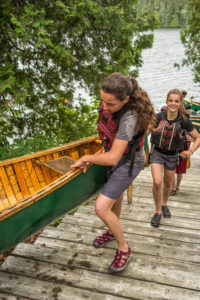 Each cabin is comprised of a group we call a section. Most sections are 6-8 campers and they stay together with the same staff on trips and in camp, for the whole summer.
Each cabin is comprised of a group we call a section. Most sections are 6-8 campers and they stay together with the same staff on trips and in camp, for the whole summer.
How do campers get to camp?
Most of our campers fly to Pearson International Airport in Toronto where they are met by our staff and drive north to the shores of Lake Temagami in a chartered bus, stopping along the way for a quick dinner. Once off the bus they hop into motorboats and travel the final ten miles up the lake, usually arriving on Devil’s Island by about 7:00 p.m., Just in time for a quick swim and a snack, before going to bed. Parents are also welcome to drive to Pearson International Airport to meet the bus and staff. The bus departs Toronto Pearson Airport at 12:30 p.m.. Campers must arrive in the morning for sufficient time to check in with Keewaydin staff and prepare for the bus ride to camp.
Can I come to visit?
We have Ojibway Family Lodge at the north end of the island just for this purpose. Parents can learn more about this beautiful lodge and how you can visit during MidSeason or EndSeason.
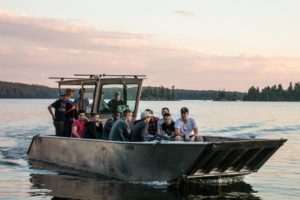
What is the food like?
In base camp, campers get three hot meals a day made in our kitchen with the freshest ingredients available. On canoe trips, all meals are prepared from scratch by campers and staff and cooked over an open fire. Breakfast is often bacon, dried fruit and hot cereal; lunches are often macaroni and cheese, gorp (trail mix), tuna wraps and/or bannock (a baking powder bread) with peanut butter and jelly. Dinners vary depending on the staff and the tastes of the section. Some favorites are pasta with red sauce, honey lime chicken with rice, pizza, burritos or whole grain stews. If the fishermen are lucky, the catch of the day will be breaded and cooked up over the fire. Dessert is often bannock, cakes if there is a birthday, or pies when there are berries to be had.
What about food allergies?
Because we make everything from scratch we are able to adapt our menus to suit all campers’ dietary needs.
Vegetarians and Vegans?
No problem. Some of our staff are vegetarians and all are prepared to cook in that manner on trip and at basecamp. Vegan is not a problem, but parents will be asked to give a specific list of foods their camper can’t or won’t eat.
I see you have boys and girls at camp. Are the trips Co-ed?
No. Our trips are single-gender; each is led by trained and qualified staff of the same gender, many of whom are graduates of our camp program and Hudson Bay Trips.
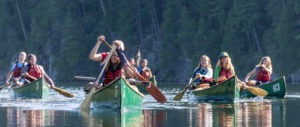
How do I communicate with my child?
Letters! Despite all of the advances in communication, letters and postcards remain the best way to communicate with your child when at camp. We ask campers to write postcards home after each trip (we supply the postcards and the stamps). We encourage parents to send letters as well because the news from home and the familiar penmanship are always eagerly received. Campers return from trip always eager to see if they have any mail from home. Magazines, articles and fun pictures are encouraged, bags of candy and cookies are not (too much attraction to the mailroom for little critters). We have a phone, but it is solely to be used for emergencies.
How bad are the bugs?
Not too bad. The black flies usually are done for the season by mid-June. We do have mosquitoes and other biting flies. Fortunately much of our time is spent on the water where the bugs are not bad during the day. We tend to be in our snug, bug- proof tents when the biters emerge at dusk. Of course we do see them on portages, and hope the encounters are brief and discouraged with insect repellant.
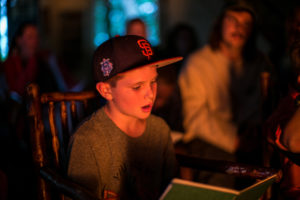
What should my camper NOT bring to camp?
No electronics … no iPods, cell phones, game machines. Actually, these are okay on the bus, or plane ride, but they’ll be locked in the camp safe upon arrival. No cell phones are permitted, even for use as a camera. Campers should not bring highly valuable items, such as expensive watches, heirloom pocket knives, expensive clothes or sunglasses. Knives should be small folding or sheath knives. No need to worry about sending extra food, we have plenty and they eat well on trips.
What kinds of things are OK to bring to camp?
Film or digital cameras … binoculars … books … canoe paddles … sunglasses … fishing rods …journals. Check our packing list, it is pretty complete.
What about important documents and cell phones, etc?
Passports, birth certificates, airline tickets, wallets and other documents will be put in an envelope and placed in our safe at the camp office for the summer. If you drop your daughter or son at camp personally, you may leave those items in the office safe.
What about Medical Emergencies?
All of our staff are trained in Wilderness First Aid, an 80 hour medical course and are certified in Wilderness Lifesaving, a lifeguarding course for wilderness situations. If a camper needs medical attention, a doctor at camp is available at all times to see campers while in from trip or to serve as a consultant by phone. Our staff carry satellite phones and Spots (Satellite GPS Messengers) for emergencies.
Medications – What should I do?
DO send prescription meds to us in the original containers and specific instructions written on the health forms. If you send over-the-counter meds as well, be sure to give us specific instructions. Campers with an albuterol rescue inhaler or epi-pen may keep their device with them.
Do they bathe?
Yes, some campers even swim every day they are at camp, winning fame and awards for their hardiness at the end of season! We encourage kids to stay clean by swimming and using biodegradable soap (Dr. Bronner’s is the best) while out on trip. When kids return to base camp, the first thing they do after putting away their gear is to head to the shower house.
Do you do their laundry?
No. They do it themselves with scrub brushes and soap. We make sure they stay clean and healthy while out on trip. More importantly, we insist they have clean clothes to return home in and when they are around base camp.
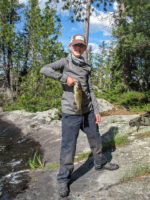
How is the fishing?
Pretty good! Walleye, northern pike and bass are the typical species seen in the Temagami region. Longer trips find the trout to be abundant in the northern regions.
Help! I am really going to miss my child! What should I do?
First, don’t worry, it is natural. We all miss our kids. Second, they are having the time of their lives; making friends, having adventures and growing in ways that will shape their character for years to come. Campers will be busy; they are with staff who are mature and making sure they are well taken care of. Third, be sure to check out our website. Despite our remote wilderness location, when campers are in camp we will post pictures from their trips so you can see the fun they are having. Finally, they will write. Promise.

